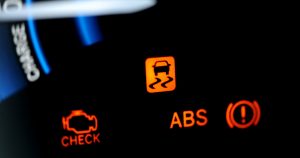 We all know the sinking feeling when you notice that your check engine light has come on. Although your gut reaction may be to ignore the light for a while or even turn it off, this isn’t advisable. The check engine light may indicate that there’s a small problem, such as a fuel cap that has not been secured properly. Such an issue can be easily resolved, and fixing it will prevent further damage.
We all know the sinking feeling when you notice that your check engine light has come on. Although your gut reaction may be to ignore the light for a while or even turn it off, this isn’t advisable. The check engine light may indicate that there’s a small problem, such as a fuel cap that has not been secured properly. Such an issue can be easily resolved, and fixing it will prevent further damage.
It could, however, also be a signal that there’s a serious problem with your vehicle. In this case, you would most definitely want to address the issue promptly, as failing to do so could involve your car breaking down, leading to even costlier repairs. Here are some tips on how to best deal with a check engine light.
What Kind of Light Is It?
Drivers often confuse the service light, which goes on if your car is due for routine care such as an oil change, with the check engine light. The latter is an indication that some part of your car is actually malfunctioning. This light could either be on or flashing. If it’s merely on, take the car to a repair garage as soon as possible. If the light is flashing, pull the car over immediately and have it towed to the nearest garage for service.
What Exactly Is Wrong With the Car?
When your check engine light comes on, you’ll need to find out what the check engine light code is before you’ll know what’s wrong with your car. There are a few ways to identify the code. Take the car to a mechanic, who’ll most likely charge you a fee to find the code and diagnose the issue, or take the car to an auto parts store where the code will be read for free.
Another option is to buy your own scanner and diagnose the issue yourself. A scanner is affordable and connects to the standardized onboard diagnostics port of your car.
Common Check Engine Light Causes
So what can be wrong when your check engine light goes on, and how much can you expect to pay? Unfortunately, a check engine light can be indicative of a range of problems that vary greatly in costs. A repair may cost as little as $20, but it could also run into the thousands. There are, however, a few common check light problems. These include:
- Faulty oxygen sensor: Cost of repairs will be about $250.
- Loose fuel cap: The fuel cap can be tightened easily or replaced at an average cost of about $17.
- Ignition coil and spark plugs: This repair will set you back about $400.
- Catalytic converter: Replacing this part amounts to about $1,190.
Although a check engine light is something nobody wants to see, it’s actually a very helpful tool. It can be indicative of a small problem that can be quickly resolved or of something more serious. Either way, addressing the issue promptly is guaranteed to save you from more expensive repairs down the road.
Image by Jim Larrison via Flickr | CC BY 2.0 | Cropped from original




